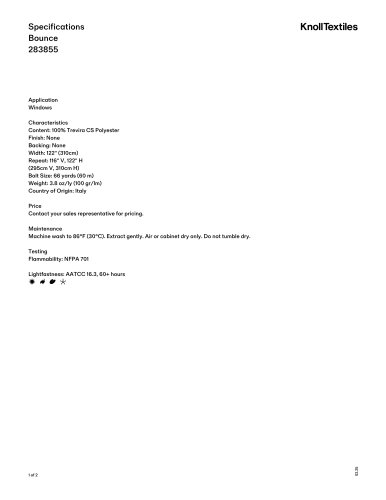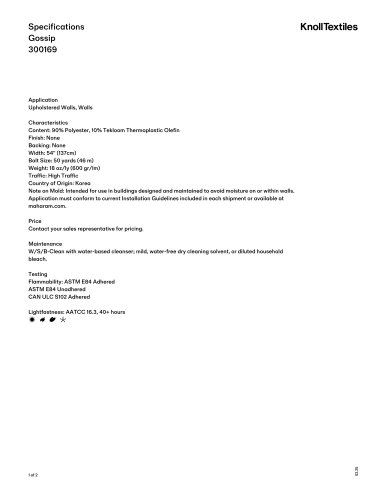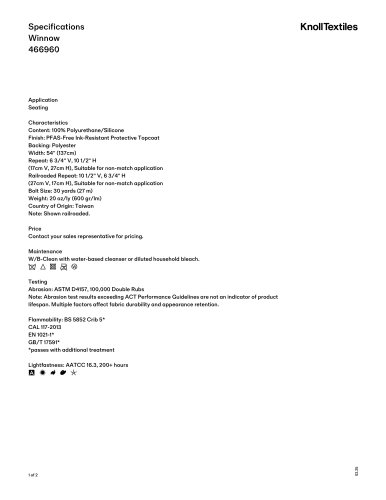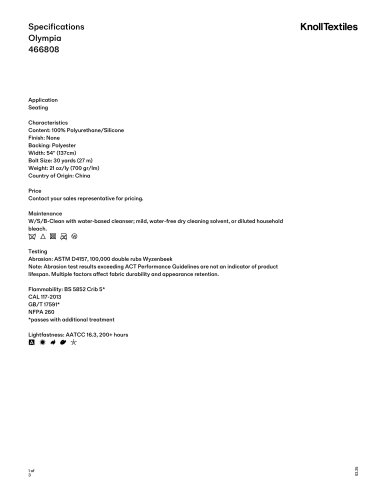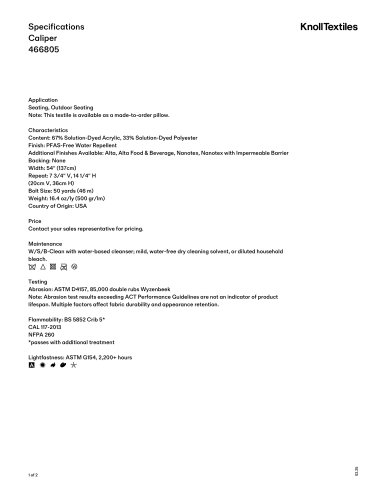
Catalog excerpts

Activity Spaces
Open the catalog to page 1
Every place is a work place Driven by the pursuit of innovation and efciency, enabled by technology and expected by a new generation, the ofce has become more collaborative. Work takes place everywhere and anywhere. Ubiquitous technology enables distributed work outside the primary workspace, whether in a meeting room, café, offsite or even outdoors. With workers spending on average half their time away from their assigned individual workspace, organizations are increasing the amount of unassigned activity space made available to everyone for both planned and spontaneous interaction. The...
Open the catalog to page 2
A variety of spaces for a variety of work Ofce planning has evolved to integrate more collaborative workstyles both in primary workspaces and in complementary activity spaces. Activity spaces are “go to” spaces accessible to everyone for everything from focused, individual and small group work to large community gatherings. While there is a spectrum of needs—from casual to formal, impromptu to planned, open to enclosed—research conrms the importance of distinct choices for each type of interactivity. Knoll offers numerous solutions for appropriately scaled activity spaces, offering refuge...
Open the catalog to page 4
Primary Workspaces ■ Refuge (1-2) focus Enclave (3-4) share Team Meeting (5-8) team ■ Assembly (10+) training, conference ■ Community (unlimited) social
Open the catalog to page 5
Refuge The “get away” space for 1–2 people Refuge is a small space (about 50 sq ft) that enables focused or condential work by one or two people. A refuge may be an enclosed room with a video display, wall mounted whiteboard surface and adaptable furniture. A refuge may also be an open area with furniture boundaries or enough space separation for a sense of privacy. One of the most important elements of successful activity spaces is privacy, which may be provided by walls and a door, by storage or furniture screens, by space separation or even by a set of headphones. Clockwise, from left:...
Open the catalog to page 6
Enclave “Get together” spaces for groups of 3–4 people Enclave spaces are small open or enclosed spaces (about 100 sq ft) available for collaborative seclusion by a group of three or four people. Enclaves are usually equipped with a desk height or lower table, wall mounted whiteboards and a video display. Enclaves are most successful when they combine ready access to technology with furnishings that provide a sense of boundary for shared work. Knoll research conrms that technology—connectivity, display and adaptability—is the most important attraction of activity spaces that work. From...
Open the catalog to page 8
Team Meeting Dedicated work areas for 4–8 people Team meeting spaces allow the whole team to come to the Proximity to the primary work area is critical to the table. Typically medium-size work rooms for four to eight people, team meeting spaces may be open plan or fully enclosed, with a larger table or clustered tables, mobile and wall mounted whiteboards and exible seating options. The most productive team meeting spaces include multiple display surfaces, convenient access to power and substantial enclosure to permit undisturbed collaboration. success of team meeting and other activity...
Open the catalog to page 10
Assembly For groups of 10 or more Assembly spaces are dedicated areas for planned interactions and collaborative work. Usually large and enclosed group spaces (400+ sq ft), assembly areas are equipped with multiple display surfaces (tackable, whiteboard and video), credenzas for storage and tables for refreshments. Conference rooms, sized for groups of ten or more, are typically formal meeting spaces for presentations. Furnishings include a very large, xed table with power, data and communications. Training rooms—exible spaces for multiple activities from education to informal...
Open the catalog to page 12
Community The “town center” of the workplace As “town center” spaces, community areas encourage interactions where ofce culture can ourish. Commons A “casual feel” attracts users to community spaces and other activity spaces. and cafés are large, multipurpose spaces for social events Clockwise from left: or unplanned interactions. And on a smaller scale, ad hoc Bertoia Diamond chair, spaces such as informal seating groups with small tables, lounge furniture groupings, and standing height counters with stools, encourage a similar sense of spontaneous, exible use. Cini Boeri lounge chair,...
Open the catalog to page 14
Knoll Activity Spaces
Open the catalog to page 15
Activity Spaces Activity spaces are “go to” spaces accessible to everyone for everything from focused, individual and small group work, to large community gatherings. Knoll offers numerous solutions for appropriately scaled activity spaces, offering refuge for one or two, enclaves for three or four, team meeting spaces for ve to eight members of a team, and larger assembly and community spaces. All encourage collaboration, improve workplace efciency and productivity, and provide organizations the opportunity to express their culture and brand. Today’s office contains individual assigned...
Open the catalog to page 16All Knoll Textiles catalogs and technical brochures
Archived catalogs
-
Lorelei in Bell
1 Pages
-
Custom Capabilities
54 Pages
-
SUNO for Knoll Luxe
16 Pages
-
Rodarte for Knoll Luxe
16 Pages
-
Proenza Schouler for Knoll Luxe
20 Pages
-
Dorothy Cosonas for Knoll Luxe
24 Pages
-
KnollStudio Overview
66 Pages
-
Upstart
4 Pages
-
Moment
2 Pages
-
Life
14 Pages
-
Chadwick
16 Pages
-
The Graham Collection Brochure
16 Pages
-
Private Offices
20 Pages
-
Office Tables
24 Pages
-
knoll kids
8 Pages
-
Office Seating
16 Pages
-
Template Planning Ideas
42 Pages
-
Template
16 Pages
-
Reff Profiles
12 Pages
-
Morrison
18 Pages
-
Interpole
6 Pages
-
Fence
4 Pages
-
Dividends Horizon
16 Pages
-
Antenna Workspaces
16 Pages
-
Open Plan Environments
20 Pages
-
Modern Healthcare Design
8 Pages
-
Drapery
28 Pages
-
Equity
16 Pages
-
Dividents Horizon
18 Pages
-
Currents
20 Pages
-
AutoStrada
20 Pages
-
Acoustical Fabrics
1 Pages
-
Gore Seating Protection
2 Pages


